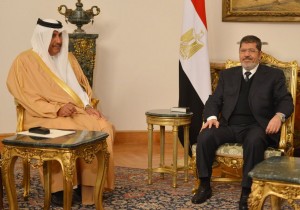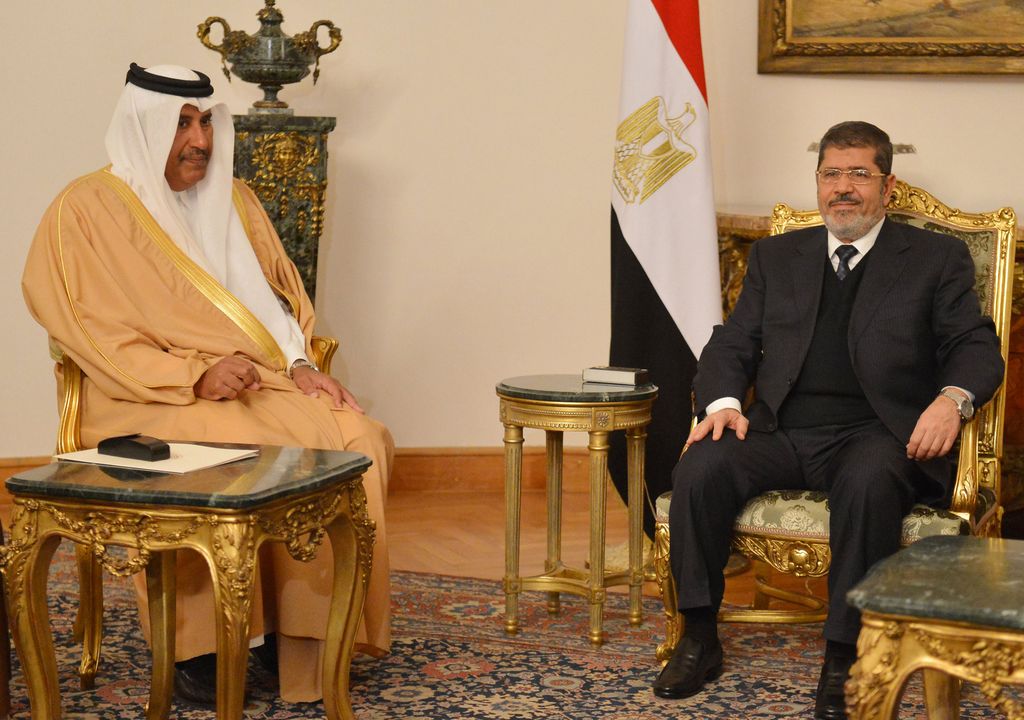
AFP PHOTO / KHALED DESOUKI
The government is currently discussing the details of a $2.5bn aid package from Qatar, by way of special IPO agreements made in dollars.
This comes a week after Qatar’s announcement that it would provide Egypt with an additional $2bn in addition to an already agreed upon $500m package.
Unfortunately, Egypt’s debt and the need to pay it off in foreign currency means that despite these deposits, Egypt’s foreign currency reserves have been unable to rise.
Egypt’s cabinet discussed plans yesterday to regarding a proposed agreement with Qatar’s Ahly Bank, aimed at obtaining funds as fast as possible. Transfer of the IPO would occur in accordance with the service provisions contract signed between the Ministry of Finance and the Qatar National Bank (QNB).
A high level government source said that in order to expedite the process, the government would need to appoint a number of IPO managers, local and international law consultants, and payment agents, as stipulated in Egypt’s law governing tenders and auctions.
Yesterday, the Cabinet studied the effects of expediting the release of the contract, while the prime minister agreed to a series of appointments for all positions having to do with its release.
An agreement is expected to be released soon that will cover the sale of IPO’s and government bonds over the next three months, in addition to the appointment of all sides party to the agreement.
Experts stated that an alternative was being created, which so far has not met support from the government. This would consist of signing a document agreement with Qatar, and informing the Ministry of Finance of the conclusion of its release, without having adhered to the Egypt’s laws governing tenders and auctions.
Reuters released a statement made by the Qatari Prime Minister saying that Qatar would stand by Egypt and did not wish to see it go bankrupt, adding that it was in the interest of the IMF to do so as well.
The government consulted yesterday with Youssef Kamal Hussein, Qatar’s finance minister, to go over the details of the contract once again in an attempt to extend the duration of its release. Some officials stated that these moves were “short-sighted” and did not comply with international standards.
The rate of return for these bonds was also discussed, which were determined to have a special price, different from the actual price of Egyptian bonds on the international market. This would leave bonds subject to the whims of supply and demand politics and the conditions of the market.
Egypt’s credit rating continues to be downgraded, leading many countries to be averse to investing in Egypt for fear of increased risk and an unstable market.
Government bonds are in the process of being approved to be traded on the world market, and inserting them onto the Luxembourg stock exchange.
Qatar is expected to respond to reservations on the Egyptian side, particularly concerning term bonds.
According to Minister of Planning Ashraf Al-Arabi, Egypt’s foreign currency reserves have hit $14bn, while the acceptance of Egypt’s IMF loan stipulated that those reserves must increase to $20bn.




